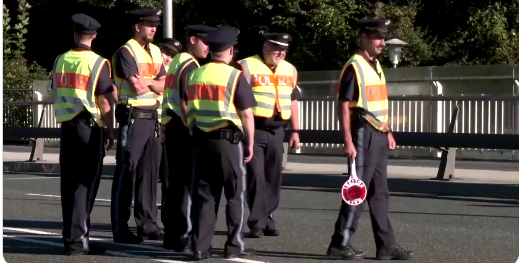Germany, often seen as the heartbeat of a borderless Europe, is now stepping back—at least for a while. Recent state elections rattled the political ground, with the far-right making historic gains, and a terrorist attack soon followed, casting immigration policy in an intense, unflattering light. The nation’s leadership, caught between public pressure and the ever-present Schengen ideals of free movement, has found itself walking a tightrope.
Germany’s government announced plans to impose tighter controls at all of the country’s land borders in what it called an attempt to tackle irregular migration and protect the public from threats such as Islamist extremism https://t.co/gXrf3NetT1 pic.twitter.com/c5O5lvbJq6
— Reuters (@Reuters) September 10, 2024
Interior Minister Nancy Faeser didn’t hold back in her words this past Monday… She made it clear that Germany couldn’t wait for Europe to figure out a better asylum system. Something had to change, now. Faeser belongs to the Social Democratic Party (SPD), and her stance reflects growing tension over terrorism, crime spilling across borders, and the need to control who enters the country. Germany, after all, has seen its political winds shift—most recently with the Alternative for Germany (AfD) party rising to prominence, riding on a wave of frustration and fear.
The backdrop to all of this? A brutal knife attack in Solingen. Three lives were lost… the suspect, a 26-year-old Syrian, had connections to ISIS and was supposed to be deported. Yet, he remained. That attack shook the public. It sent ripples through the political fabric, making tougher borders not just an idea, but a demand.
And so, starting next Monday, Germany will reintroduce systematic border checks for six months. No longer limited to its border with Poland or Switzerland, these checks will now extend to travelers from Belgium, France, Denmark, and other neighboring countries. It’s not merely for show; these controls had already turned back thousands in previous months. The full scope of what these new checks will entail, how strict they’ll be, still remains foggy—but it’s happening.
Germany tightens border control rules; Berlin to step up expulsion of asylum seekers convicted of crimes@jyotsnakumar13 tells you more pic.twitter.com/GoJm2Jgcn0
— WION (@WIONews) September 10, 2024
This is where the story spreads wider… into Europe. Not everyone’s on board. Poland’s Prime Minister, Donald Tusk, didn’t hide his displeasure. He slammed Germany’s move, calling it wrongheaded. His words echoed a broader frustration—shouldn’t Germany focus on securing the EU’s external borders instead of tightening its internal ones? For countries like Poland, this felt like a step backward… a shift away from collective European security solutions.
But the problems don’t stop there. There’s a looming question: what happens to those turned away at the German border? Austria’s interior minister has already drawn a hard line—his country won’t be taking them. No discussion, no debate… just a firm no. The risk of people being stranded, caught in bureaucratic limbo, grows larger by the day. It’s a tangled mess of laws, policies, and human lives stuck in the middle.
Europe’s fury as Germany tightens its borders: Neighbours say they WON’T take back rejected migrants and declare Berlin’s plan to stem tide of asylum seekers and Islamist terror a threat to free movement https://t.co/qZ85D7Dhpe pic.twitter.com/fUWlYeclbQ
— Daily Mail Online (@MailOnline) September 10, 2024
Migration experts like Alberto-Horst Neidhardt have sounded alarms… warning of overcrowded camps, where rejected individuals pile up, with nowhere else to go. Yet, the bigger worry is what this move from Germany might spark—a ripple effect. If Germany tightens its borders, what’s to stop France, the Netherlands, or others from doing the same? Neidhardt suggests we could be watching the beginning of a larger shift in European policy, one where the focus becomes increasingly nationalistic, as governments scramble to address domestic anxieties.
It’s a far cry from the Germany of 2015, when Angela Merkel stood tall and welcomed hundreds of thousands of refugees. Those days are fading… a different mood has settled in. The public demands security, and political leaders are responding. Whether this approach will actually curb irregular migration or terrorism remains to be seen. What’s certain is that Germany, once the champion of open borders, is now wrestling with its own contradictions—caught between European ideals and the very real fears of its citizens.
One thing’s clear: the Schengen dream… it’s wobbling.
Major Points
- Germany announces stricter border checks in response to security concerns and far-right election gains.
- The move follows a terrorist attack by a failed asylum seeker, sparking calls for tighter immigration control.
- Neighboring countries, like Poland, criticize Germany’s decision, fearing broader consequences across the EU.
- Austria rejects the idea of accepting rejected asylum seekers from Germany, raising concerns about migrants stranded at borders.
- The broader EU dynamic sees concerns that other countries may follow Germany’s lead in tightening border controls.
RM Tomi – Reprinted with permission of Whatfinger News



